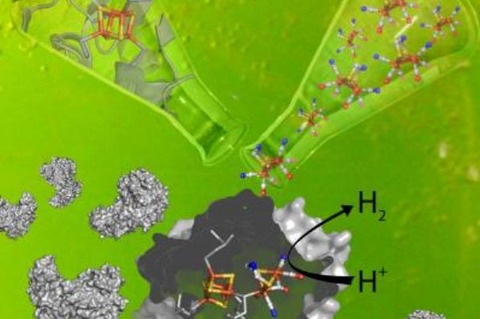Experts synthesise bio-based hydrogen
13 Aug 2013

Researchers at the Ruhr-Universität Bochum (RUB) have discovered an efficient process for hydrogen biocatalysis.
The semi-synthetic biology uses hydrogen-generating enzymes, developed by adding a protein’s biological precursor to a chemically synthesised inactive iron complex.
According to researchers, the biological catalyst formed spontaneously in a test tube. RUB professor Dr Thomas Happe said: “Now, we have made a decisive step towards the generation of bio-based materials.”
The new method has the potential of becoming a milestone in hydrogenase research
RUB professor Dr Thomas Happe
“Under ideal conditions, one single hydrogenase enzyme can generate 9,000 hydrogen molecules per second,” he added.
Due to the difficulty of extracting active hydrogenases from living organisms, Happe’s team suggested an optimisation of the method reported in the research journal, Nature.
“The new method has the potential of becoming a milestone in hydrogenase research,” said Happe.
Moreover, the team believe it is suitable for high-throughput analysis of hydrogenase proteins that have been newly discovered or altered on the molecular biological level.
Hydrogenase use for humans derives from its ability to generate a clean energy water carrier as hydrogen is capable of combusting to form pure water. It can also play a vital role in the generation of fuel cells via applications such as hydrogen from solar energy.

